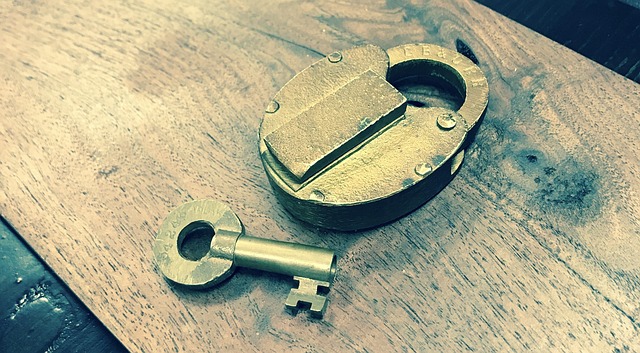Proximity card access systems use encrypted key data to control and secure building entry, protecting sensitive info & critical infrastructure in high-security environments like data centers & hospitals. Encryption prevents data breaches & unauthorized access, even if cards are lost or stolen, significantly enhancing cybersecurity for businesses dealing with confidential information.
In today’s digital age, ensuring robust cybersecurity is paramount. One innovative solution gaining traction is encrypted key card data for proximity card access. This article explores how encryption technology fortifies sensitive data within these cards, enhancing overall security measures. We delve into the benefits of this approach, particularly in mitigating cyber threats associated with proximity card access systems. By securing key card data, organizations can unlock secure entryways while safeguarding their digital infrastructure.
Proximity Card Access: Unlocking Secure Entryways
Proximity card access systems have transformed the way we secure entryways, offering a sophisticated level of control and convenience. These smart cards utilise encrypted key data to grant or deny entry, ensuring only authorised individuals can access specific areas. When a user holds their proximity card near a reader, it triggers an encrypted signal that verifies their identity and grants access. This technology is particularly valuable in high-security environments, such as data centres, government facilities, and hospitals, where strict access control is essential for protecting sensitive information and critical infrastructure.
By implementing proximity card access, organisations can enhance their cybersecurity posture significantly. The encrypted key data stored on the cards ensures that even if a card is lost or stolen, unauthorised access is still prevented, as the system requires both the physical card and the correct decryption key to gain entry. This multi-factor authentication approach adds an extra layer of security, making it much harder for potential threats to infiltrate secure spaces.
Encryption Technology: Protecting Sensitive Data
Encryption technology plays a pivotal role in safeguarding sensitive data, especially within the context of proximity card access systems. When it comes to securing entry points and controlling access, encrypted key card data offers an advanced layer of protection. By converting the information stored on these cards into unreadable code, encryption ensures that even if unauthorized individuals gain access to the encoded data, they cannot decipher or utilize it effectively.
This process is particularly crucial for businesses and organizations dealing with confidential information or facilities requiring strict security protocols. Encryption technology prevents data breaches, protects privacy, and deters malicious activities associated with card cloning or skimming. With advanced encryption algorithms, each proximity card access request is securely transmitted and verified, ensuring that only authorized users can gain entry, thereby strengthening overall cybersecurity measures.
Key Card Security: Mitigating Cyber Threats
Proximity card access systems have become integral in securing facilities and controlling entry points, but with growing cyber threats, ensuring their data security is more critical than ever. Traditional access cards often store sensitive information that can be vulnerable to hacking attempts if not properly encrypted. Encrypted key card data offers a robust solution by converting the encoded data into unreadable formats, making it nearly impossible for unauthorized individuals to compromise the system.
By implementing encryption, each access card becomes a unique and secure token, significantly mitigating the risk of skimming or cloning attacks commonly associated with proximity card technology. This advanced security measure ensures that even if a card is lost or stolen, its data remains inaccessible without the appropriate decryption key, thus enhancing overall cybersecurity for buildings and networks.
Enhanced Cybersecurity: Benefits of Encrypted Keys
Encrypted key cards offer significant advantages in enhancing cybersecurity measures, particularly within environments that rely on proximity card access systems. By encrypting data stored on these cards, organizations can protect sensitive information from unauthorized access and potential cyber threats. This is especially critical in high-security areas where loss or theft of access cards could have severe consequences.
The benefits are multifaceted: it prevents malicious actors from intercepting card data during transit, thereby reducing the risk of identity theft; ensures that even if a card is compromised, the underlying data remains secure and unusable without the decryption key; and strengthens overall system security by adding an extra layer of protection against unauthorized entry or manipulation. These features make encrypted key cards a powerful tool in maintaining a robust cybersecurity posture, especially in dynamic environments where access control needs to be both flexible and secure.
Encrypted key card data represents a significant step forward in proximity card access security. By leveraging advanced encryption technology, organizations can effectively mitigate cyber threats and protect sensitive data. Implementing encrypted keys enhances overall cybersecurity, ensuring secure entryways while safeguarding critical information from unauthorized access. This innovative approach is transforming the way we manage access control, making it an essential tool for modern facilities.
